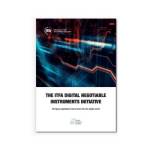Standard Legal Charges

Access trade, receivables and supply chain finance
We assist companies to access trade and receivables finance through our relationships with 270+ banks, funds and alternative finance houses.
Get StartedContents
A charge is a security taken over an asset, granting the lender rights over it, such as, the right to sell the asset in order to obtain the proceeds and discharge the underlying debt. Security is registered over assets by the lender or financier. A charge agreement outlines the transfer to the lender of a proprietary interest in an asset or class of assets, serving as a security. However, unlike other types of security, charges do not transfer ownership rights to the lender but to establish an equitable interest.
Fixed charges vs floating charges
There are two types of charges that can be taken, fixed or floating, depending on the assets involved. The nature of the charge will be of particular importance when the borrower is insolvent.
Fixed charges involve a determined asset, which has to be ascertained and identifiable. The key characteristic of this type of security lies in giving the lender a control over the asset. Specifically, the lender will be given the rights to:
- Prevent the borrower from disposing of the asset without the lender’s consent
- Sell the asset in case of default of the borrower under the loan agreement
- Claim the proceeds of the sale of the asset in priority over other lenders
Floating charges, are granted over a pool of changing assets, such as stocks. Such charges involve present and future assets of a company which vary from time to time, and therefore are defined in general terms. Also, it can only be created by a company or a limited liability partnership (LLP).
Under this type of security, the borrower retains the right to dispose of the assets, for instance by acquiring further assets in the ordinary course of its business. Therefore, flexibility is a key element of floating charges and certainly serves as its main advantage. However, this flexibility may be difficult to handle for the lender as they cannot dispose of these assets and may face issues in order to stop the borrower from disposing of these assets.
Implications of the distinction
The primary implication of this distinction lies in the fact that in case of a default of the borrower, a floating charge ranks behind the rights of preferential creditors, whereas a fixed charge takes precedence over all unsecured claims.
Further, fixed charges have several advantages over floating charges:
- Floating charges require registration at Companies House, in order to be unenforceable against the liquidator or any creditor of the company (borrower) while a fixed charge only needs to be registered when taken over a pool of assets listed in the Companies Act 2006.
- Many foreign legal systems, especially civil law countries, do not recognise the concept of floating charges.
- The sale of an asset subject to a floating charge will be free from that charge, whereas a fixed charge can only be defeated where the asset’s legal title is transferred to a genuine purchaser for value
- As mentioned above, under a floating charge, the lender has limited control over the secured assets as the borrower can carry on its business related to such assets
On the other hand, floating charges have three main advantages:
- It allows the bank to secure assets without unduly restricting the borrower’s ability to carry on its day-to-day business regarding the secured assets
- Since the assets secured by a floating charge are defined in general terms, it allows coverage of all the borrower’s assets
- In the context of the Insolvency Act, in case of liquidation of the borrower’s company, the lender will be able to appoint an administrator without applying for a court order
Considering the referenced comparisons, despite fixed charges being a more reliable and stronger form of security to take over an asset, floating charges offer flexibility for the parties, particularly the borrower. Therefore, the lender will commonly use a combination of both charges contained in a document, which is called a debenture.
Debentures
A debenture is a legally binding agreement by which a lender will create a fixed charge over specific assets of the borrower, such as land, machinery or intellectual property rights, and a floating charge over all other assets. This combination will aid the lender in obtaining the most fitting security over the asset, while allowing the borrower to carry on its business, especially by selling its stock, due to the presence of floating charge.
References:
https://www.out-law.com/topics/financial-services/banking/security-in-finance-transactions/ – 29/10/2018
https://www.fortunelaw.com/giving-security-by-way-of-a-charge/ – 29/10/2018
/
- International Trade Law Resources
- All International Trade Law Topics
- Podcasts
- Videos
- Conferences















